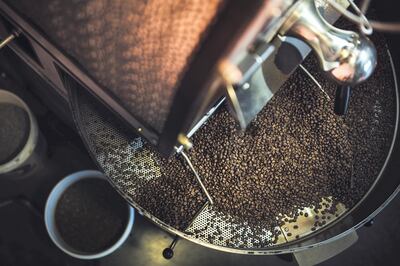There are many conflicting health reports out there when it comes to coffee, but according to latest research, a moderate daily dose of caffeine can actually increase your life expectancy.
Two cups of coffee a day can add up to two years to your life, according to a study published in the European Journal of Epidemiology.
Researchers analysed the findings of 40 previous studies around coffee consumption. These studies contained 3,852,651 subjects and looked at 450,256 causes of death.
From these figures, researchers discovered that those who drank a moderate amount of coffee – between two and four cups a day – saw all-round reduced mortality rates, regardless of their weight, alcohol consumption, whether or not they smoked, and the caffeine content of their coffee.
The data showed that compared with those who drank no coffee, those who regularly drank controlled amounts went on to live slightly longer. Researchers also found that the link between coffee and mortality was stronger in Europe and Asia than in the US.
Speaking to The Sunday Times, Astrid Nehlig, a research director at France's National Institute of Health, said: "It is difficult to calculate, but my feeling is that drinking coffee possibly adds another couple of years to your life."
She added that this could be down to the effect of coffee, which can increase focus and make drinkers more alert.
Previous studies have found multiple other benefits of drinking coffee, including reducing the risk of Alzheimer's and Parkinson's disease.
Another recent study, carried out at the University of South Australia, sought to investigate how much coffee is too much – and found the results to be surprisingly high.
Researchers discovered that keeping coffee consumption under six cups per day was unlikely to affect heart health. However, they found that any more than six was likely to lead to a rise in blood pressure, putting extra strain on the heart. According to their findings, drinking six or more cups of coffee a day could increase risk of cardiovascular disease by 22 per cent.
"Most people would agree that if you drink a lot of coffee, you might feel jittery, irritable or perhaps even nauseous – that's because caffeine helps your body work faster and harder, but it is also likely to suggest that you may have reached your limit for the time being," said professor Elina Hypponen, who led the study.
"We also know that the risk of cardiovascular disease increases with high blood pressure, a known consequence of excess caffeine consumption," she added. "In order to maintain a healthy heart and a healthy blood pressure, people must limit their coffees to fewer than six cups a day — based on our data six was the tipping point where caffeine started to negatively affect cardiovascular risk."
GAC GS8 Specs
Engine: 2.0-litre 4cyl turbo
Power: 248hp at 5,200rpm
Torque: 400Nm at 1,750-4,000rpm
Transmission: 8-speed auto
Fuel consumption: 9.1L/100km
On sale: Now
Price: From Dh149,900
Killing of Qassem Suleimani
Sholto Byrnes on Myanmar politics
BMW M5 specs
Engine: 4.4-litre twin-turbo V-8 petrol enging with additional electric motor
Power: 727hp
Torque: 1,000Nm
Transmission: 8-speed auto
Fuel consumption: 10.6L/100km
On sale: Now
Price: From Dh650,000
Red flags
- Promises of high, fixed or 'guaranteed' returns.
- Unregulated structured products or complex investments often used to bypass traditional safeguards.
- Lack of clear information, vague language, no access to audited financials.
- Overseas companies targeting investors in other jurisdictions - this can make legal recovery difficult.
- Hard-selling tactics - creating urgency, offering 'exclusive' deals.
Courtesy: Carol Glynn, founder of Conscious Finance Coaching
Key findings of Jenkins report
- Founder of the Muslim Brotherhood, Hassan al Banna, "accepted the political utility of violence"
- Views of key Muslim Brotherhood ideologue, Sayyid Qutb, have “consistently been understood” as permitting “the use of extreme violence in the pursuit of the perfect Islamic society” and “never been institutionally disowned” by the movement.
- Muslim Brotherhood at all levels has repeatedly defended Hamas attacks against Israel, including the use of suicide bombers and the killing of civilians.
- Laying out the report in the House of Commons, David Cameron told MPs: "The main findings of the review support the conclusion that membership of, association with, or influence by the Muslim Brotherhood should be considered as a possible indicator of extremism."
Read more from Johann Chacko
How to volunteer
The UAE volunteers campaign can be reached at www.volunteers.ae , or by calling 800-VOLAE (80086523), or emailing info@volunteers.ae.
Company%20profile
%3Cp%3EName%3A%20Cashew%0D%3Cbr%3EStarted%3A%202020%0D%3Cbr%3EFounders%3A%20Ibtissam%20Ouassif%20and%20Ammar%20Afif%0D%3Cbr%3EBased%3A%20Dubai%2C%20UAE%0D%3Cbr%3EIndustry%3A%20FinTech%0D%3Cbr%3EFunding%20size%3A%20%2410m%0D%3Cbr%3EInvestors%3A%20Mashreq%2C%20others%0D%3C%2Fp%3E%0A
The design
The protective shell is covered in solar panels to make use of light and produce energy. This will drastically reduce energy loss.
More than 80 per cent of the energy consumed by the French pavilion will be produced by the sun.
The architecture will control light sources to provide a highly insulated and airtight building.
The forecourt is protected from the sun and the plants will refresh the inner spaces.
A micro water treatment plant will recycle used water to supply the irrigation for the plants and to flush the toilets. This will reduce the pavilion’s need for fresh water by 30 per cent.
Energy-saving equipment will be used for all lighting and projections.
Beyond its use for the expo, the pavilion will be easy to dismantle and reuse the material.
Some elements of the metal frame can be prefabricated in a factory.
From architects to sound technicians and construction companies, a group of experts from 10 companies have created the pavilion.
Work will begin in May; the first stone will be laid in Dubai in the second quarter of 2019.
Construction of the pavilion will take 17 months from May 2019 to September 2020.
The specs
Engine: 2.0-litre 4cyl turbo
Power: 261hp at 5,500rpm
Torque: 405Nm at 1,750-3,500rpm
Transmission: 9-speed auto
Fuel consumption: 6.9L/100km
On sale: Now
Price: From Dh117,059



